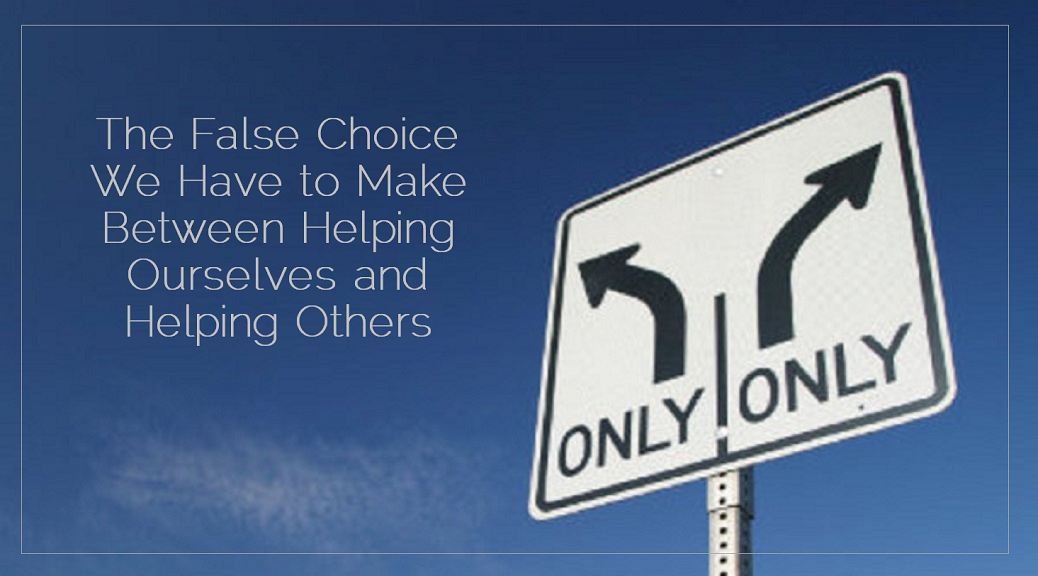It’s interesting how each person’s life struggles seem to distil to just a handful of challenges that occur again and again in various shapes and forms. A personal struggle of mine, which I blogged about previously (and one post of which will be reposted later on today), is the injustice that operates within so many relationships, in which one person gives a lot more to others than they receive. This injustice struck me yet again when I recently met with an exhausted and overwhelmed friend for coffee. Concerned at first that the exhaustion was health-related, I realised that it was a case of helping everyone else and not getting much help when she needed it.
The solution that always comes immediately to mind seems both simple and impossible to people like her: she needs to stop helping others so much and take the time to help herself. But unfortunately, she—and other selfless people like her—not only can’t stop helping others, but refuse to do so; what would the world become if we all stopped helping one another? she challenged me.
It feels like many around me—and myself—are caught in the same dilemma: our own affairs often stagnate as we put them on hold to help others, and when ask for help, no one seems to ever be available to help us.
I’ve been stuck on this idea until a couple of days ago, when another idea suddenly occurred to me as I was washing the dishes: that the above conversation in itself seems wrong, that it is, in fact, a false choice. For one, it creates a dichotomy between helping others and helping oneself. Surely there is a way of presenting this state of affairs in a non-contradictory way. Surely we don’t have to choose between, in essence, our personal development and a life of service!
So what should the conversation be about? Perhaps a focus on balance and coherence would be more appropriate. How do I balance out the need to take care of my personal development with that of serving humanity? Is what I’m doing to take care of my personal development coherent with serving humanity, and vice-versa?
An example of this would be reading. Books are important to our personal development; they challenge our thinking and open our minds up to new possibilities. But if we spend seven hours a day reading, well, either we have the best job in the world (sign me up for it, pronto!) or we are not giving ourselves enough time to put what we are reading into practice in our life of service.
Similarly, if what I’m reading doesn’t have anything to do with my path of service—even remotely—then reading it will only serve to help me. Perhaps I could consider reading books that are both helpful to my personal development as well as contributing to a meaningful life of service. I’m thinking for example of the many works of fiction I’ve read recently that helped me understand aspects of my social reality I had never thought about.
Personal development and living a life of service are so intimately related that we have to figure out how to balance them. And all the more important is to remember two things. First, that things are bound to change with time. Today’s balance is tomorrow’s imbalance. Which ties into number two: it’s all about constant and consistent learning.
In other words, stay tuned for my next blog posts on the topic 😉


I’m glad I’m not the only one who feels this way. Lately I’ve been thinking that I need some new pants for work, and yet I don’t purchase them because in my mind I think that the money would be better spent on others! I can’t wait to see your next post!
I’m so happy to hear that I’m not the only one as well! How do you feel about not buying the pants? Is it hard or easy to let go of them?
I think about this a lot. I want to give to charity but money is tight. I want to volunteer but I have no time. I wasn’t to do so much but can’t and I feel so guilty about it.